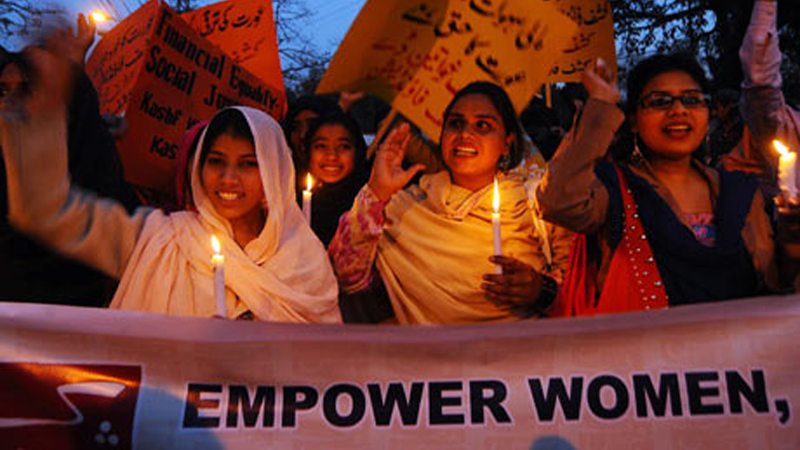Feminism, as a movement, started in the beginning of 19th century with an aim to empower women as women had no right to vote. This phase of feminism is known as the first wave of feminism. Capitalising on the gains of the first wave, feminists started to extend the scope of their demands in the following decades which then brought on the Second and Third wave of feminism, each with a different set of demands.
How feminism should be defined and what its scope should be has brought division among feminists and a debate has started about the term ’feminism’. In her article entitled “Women Against Feminism: An Analysis of Anti-Feminist”, Monica has tried to explore negative discourse surrounding feminism in over 100 posts made by women on the Tumblr site, “Women Against Feminism,” through qualitative content analysis. Tumbler is a micro blogging and social networking website where people post multimedia and short-form blogs. Monica’s analysis helps one understand critiques and arguments of those believing in anti-feminism and can impress upon anyone curious the diversity within feminist circles.
According to her analysis of 100 posts made by women on the Tumblr site, the following are the ten reasons because of which women have been found disillusioned with feminism and because of which they believe in anti-feminism.
- A major chunk of women don’t believe in feminism’s claim of bringing equality as it does not discuss men’s rights.
- Some women enjoy being mothers and wives and they think feminism does not have any regard for their choice as feminists expect women to be not confined to these roles.
- Some women, advocate for males’ rights and they think feminism discourse does not sympathise with males’ problems and only frames males’ hatred approach.
- Some women enjoy being feminine and, instead of perceiving themselves as the victim which is a predominant theme in feministic discourse, they enjoy being treated nicely by gentlemen.
- Some women don’t buy the idea of feminists to perceive themselves as victims or oppressed. They don’t believe that feminists fights for the oppressed as they don’t feel oppressed.
- Some women oppose feminism for the reason that, in its discourse, all the problems that a woman has been facing is because of someone else. These women claim themselves to be self-confident and responsible and don’t want to put blame on someone else for something wrong going on in their lives.
- Some women avoid being tagged as feminists because those believing in feminism are believed to be ‘angry women’, ‘misogynists’ or have cult like beliefs.
- Some women don’t believe in feminism for the reason that men and women are different so there can’t be any equality among them. Because of accepting differences between males and females, they are not on the same level with most feminists.
- Some women don’t believe in feminism by saying that their future or current children don’t need feminism as they will train their boys about what true equality means.
- Some women negate modern feminism by saying that they don’t want someone else to fight their battles for them as feminists try to talk on their behalf.
One of my female class fellows at Government College University, when I was about to start working on my thesis, was of the view that feminism was a western concept and she did not like it because it made her feel a victim. A few weeks ago, I got the same answer from one of the teachers at English department in University of the Punjab after she said she was anti-feminist because feminism made her feel as if she was an object rather than a subject.
The biggest challenge to feminism is not from outside but from within. Feminists are trying to define what feminism stands for, and they still have to create a sense of unity among their ranks
Overall in Pakistan, this is what I have observed in academia, girls are either completely unaware of what this debate is all about or are anti-feminist. Men also have a lot of misconceptions about the term and I can illustrate through quoting a comment of one of the students during my lectures about feminism at the Department of Political Science last week when he said, “feminism promotes vulgarity.” Upon inquiry out of sheer curiosity when I asked what made him say this thing, he had no answer.
This overall vague approach towards feminism in Pakistan is because the issue is hardly being discussed in classes with a nuanced approach. Students can hardly come out of popular influences with respect to the issue inside classes as nothing is discussed critically and they hardly connect to the discourses introduced to them.
The biggest challenge to feminism at the moment across the globe is not from outside but from within, Feminists are trying to define what actually feminism stands for and, in their disconnection from one another, they are hardly able to create unity. The diversity within feminist circles is not a bane if it is accommodated smartly and inclusively. The overall discourse of feminism needs to be revisited to accommodate the diversity within, especially the disillusioned lot among women with respect to male and female.
Moreover, the debate within Pakistan with reference to the issue is at the very basic level. There is a need to create a space for discussion on the issue in academia and students’ misconceptions about the terms need to be clarified. Students, critically equipped with gender discourse, will be messengers of change in the area they belong to.
The writer is an MPhil scholar studying International Relations at Department of Political Science at University of the Punjab, Lahore. He can be reached at uinam39@gmail.com, https://www.facebook.com/inamullah.marwat.56
Published in Daily Times, November 23rd 2017.

